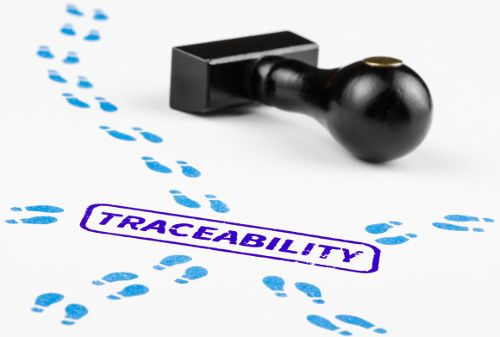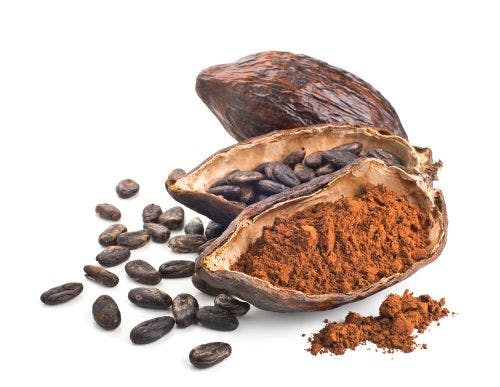Can Small Dietary Supplement and Food Brands Also Build Traceability Platforms?
The quick answer is yes. It can be done, and it has been done. Here's how.
Photo © Shutterstock.com/chase4concept

In March, I wrote about how the new Amazon Elements supplements line is promoting traceability, including featuring a QR code on packaging so customers can verify where a product’s ingredients were sourced, when the supplement was made, and how it was tested. Amazon is a giant, with significant resources, one assumes. Can smaller brands also afford to create ambitious traceability initiatives like this?
The quick answer is yes. It can be done, and it has been done. In fact, as I pointed out in March, Amazon was actually not the first dietary supplement company to roll out a QR-code traceability program; Gaia Herbs, a smaller firm, was actually the first way back in 2010 with its Meet Your Herbs program, complete with QR code. During that time, Gaia’s founder and CEO Ric Scalzo says, “we were not the $50 million company we are today. We were substantially less than that, so that probably put us at a small company (but certainly not a start-up, by any stretch).”
For Gaia, says Scalzo, establishing a traceability platform was challenging but doable because the company controls its entire supply chain. “We’re a seed-to-shelf company, meaning we control the seed selection, the supply chain, horticultural development, the farms, the extraction, the testing, the whole process-everything that’s building up to the pinnacle of the quality of the finished product,” Scalzo explains. “We had all of the inputs already controlled here at Gaia. All of that data had already been collected for years and years, and the challenge for us was figuring out how to compile it, report it, and bring it all under one platform.”
Scalzo says, “It took us a long time to write a software program to harness all this data, from several locations. Most of it was coming from our operational management system, but some of it was coming from separate types of data platforms, and we had to link it all together and then somehow command access to the data and then report it in a way that was meaningful to the consumer.”
Scalzo does acknowledge that for an “emerging” brand, implementing this kind of traceability can be a challenge because most start-ups and smaller companies do not have control back to the field like Gaia does; instead, companies are more likely buying finished extracts from a raw-materials supplier or distributor, and because of that, “a big part of the traceability story [may be] cut off,” Scalzo says.
Traceability is still possible for some companies because they are doing it on a smaller scale. In March, boutique freeze-dried fruit and veggie brand Crunchies announced that it had launched its own traceability platform that allows customers to learn about the region, including climate and topography, where each bag of fruit/veggie was grown by entering a lot code from the packaging on a website.
CEO Scott Jacobson says, “I think a larger corporation would have a tougher time implementing a project like this. We are a one-ingredient snack, so from a practical standpoint, we have a lot less to track.” He adds that once Crunchies figured out how to get the technology to jive with its current lot-tracking and production procedures without duplicating data entry, “it came together quite well.” And, he says, moving forward, “with the infrastructure in place, our next phase should be a little easier.”
Both Scalzo and Jacobson say their companies have seen the payoff from investing in traceability. “It continues to separate us from our competitors,” says Jacobson. “Since we are the only vertically integrated freeze-dry brand in the U.S., we wanted a way to clearly highlight that benefit to our customers and, more importantly, the consumer.”
Scalzo says the investment in Meet Your Herbs has benefited Gaia Herbs “in every way,” sales included. “It’s definitely catapulted the brand to a much, much higher status of respect and as a brand leader for quality and certainly traceability,” he says. Not only that, he says, “We saw how outside companies began to look at Gaia from a point of reputation. We also saw how FDA began to look at Gaia” as a responsible leader.
“All around, at every level, everything was lifted up in terms of brand integrity,” he concludes. Can traceability do the same for your company?
Also read:
Amazon Elements Dietary Supplements: Fear, or Follow?
Is Full Traceability Possible in Today’s Dietary Supplement Supply Chain?
Jennifer Grebow
Editor-in-Chief
Nutritional Outlook magazine
jennifer.grebow@ubm.com

Prinova acquires Aplinova to further increase its footprint in Latin America
April 7th 2025Prinova has recently announced the acquisition of Brazilian ingredients distributor Aplinova, which is a provider of specialty ingredients for a range of market segments that include food, beverage, supplements, and personal care.






















